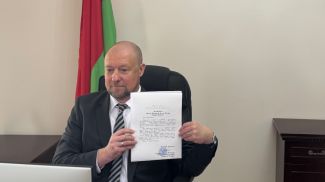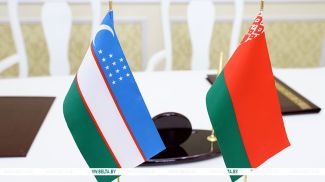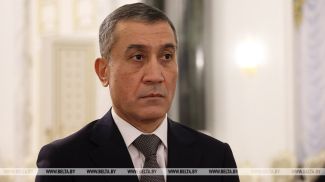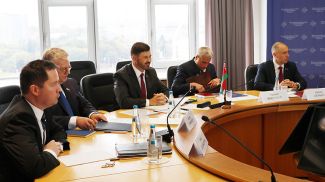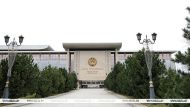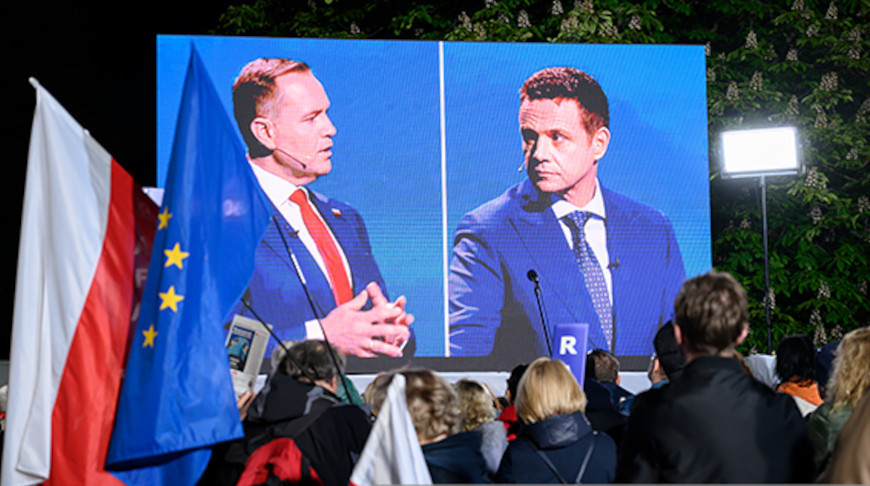
The debates between Polish presidential candidates Rafał Trzaskowski and Karol Nawrocki were held on Friday, 23 May. The second round of elections, which will determine the winner, will be held on 1 June, so the candidates are doing everything possible to win over voters who are still undecided. After all, it will depend on them who will win the election.
Rafał Trzaskowski, the mayor of Warsaw, is the candidate of the Civic Platform (CP) led by Donald Tusk. In a nutshell, this can be called the pro-Brussels option. On the other hand, Karol Nawrocki, head of the Institute of National Remembrance, is theoretically a non-partisan candidate, but in reality he is supported by the Law and Justice (PiS) party led by Jaroslaw Kaczynski. The PiS has recently made a political pivot toward the Trump administration and the parties in the EU that can be described as Euroskeptic. The figure of Mateusz Morawiecki, a politician who served as prime minister for a long time, is a major burden for PiS. He signed a number of agreements to toe Brussels' line, which were perceived by a significant part of the Polish public as a betrayal of national interests. We are talking, for example, about the migration pact or green acts.
Jarosław Kaczyński nominated an independent candidate who could easily disassociate himself from the erroneous decisions of PiS politicians. The choice fell on Karol Nawrocki, a little-known politician. This is the same scheme as the nomination of Andrzej Duda in the presidential election. Jarosław Kaczyński was introduced to Duda by Zbigniew Zebro, under whom he had previously served as one of the deputy justice ministers. Pre-election polls did not give Duda any chance against Komorowski. Therefore, Kaczyński decided to nominate the well-known political scientist up for election, expecting that Duda would lose. However, this defeat was not meant to cast a shadow on the image of PiS. To Kaczyński's surprise (and not only his), Duda won the election and became president.
Thus, at the moment we have a somewhat similar scenario with Nawrocki.
Rafał Trzaskowski, the mayor of Warsaw, is the candidate of the Civic Platform (CP) led by Donald Tusk. In a nutshell, this can be called the pro-Brussels option. On the other hand, Karol Nawrocki, head of the Institute of National Remembrance, is theoretically a non-partisan candidate, but in reality he is supported by the Law and Justice (PiS) party led by Jaroslaw Kaczynski. The PiS has recently made a political pivot toward the Trump administration and the parties in the EU that can be described as Euroskeptic. The figure of Mateusz Morawiecki, a politician who served as prime minister for a long time, is a major burden for PiS. He signed a number of agreements to toe Brussels' line, which were perceived by a significant part of the Polish public as a betrayal of national interests. We are talking, for example, about the migration pact or green acts.
Jarosław Kaczyński nominated an independent candidate who could easily disassociate himself from the erroneous decisions of PiS politicians. The choice fell on Karol Nawrocki, a little-known politician. This is the same scheme as the nomination of Andrzej Duda in the presidential election. Jarosław Kaczyński was introduced to Duda by Zbigniew Zebro, under whom he had previously served as one of the deputy justice ministers. Pre-election polls did not give Duda any chance against Komorowski. Therefore, Kaczyński decided to nominate the well-known political scientist up for election, expecting that Duda would lose. However, this defeat was not meant to cast a shadow on the image of PiS. To Kaczyński's surprise (and not only his), Duda won the election and became president.
Thus, at the moment we have a somewhat similar scenario with Nawrocki.
It is possible that this is an existential fight for Law and Justice. After all, a victory for Rafał Trzaskowski would mean that Donald Tusk, who has repeatedly stated that he will handle the scandals around PiS politicians, will receive full power.
Jan Hartman wrote for Polytica: "There are debates that seal the fate of elections. Was Friday's debate between the two presidential candidates one of them? Most likely. Indeed, this time Rafał Trzaskowski, to put it bluntly, ‘crushed’ Karol Nawrocki. Or, if you use the same parlance, Karol Nawrocki "committed self-destruction". This wording is most fitting, because Karol Nawrocki did everything possible to expose his true nature. Many of us, perhaps, did not expect such a feast of vileness, ridicule, slander and outright boorishness. Karol Nawrocki’s statements consisted mainly of lies, distortions, slander, mockery and boorish refutations of what he heard from his opponent, and all this was accompanied by artificially aggressive grins, nervous fidgeting and crossing of legs."
Is this assessment correct and will Friday's debate decide the outcome of the election?
Both Rafał Trzaskowski and Karol Nawrocki have their core base. The problem for both candidates is that this base is too small to sway the vote and win the election.
Sławomir Mentzen who placed third in Poland's presidential vote invited Rafał Trzaskowski and Karol Nawrocki for a sit-down on his YouTube channel. According to him, he wants to help voters make up their mind before the second round of the election. He suggested that the Civil Platform and PiS politicians sign a declaration.
The declaration consists of eight points:
1. I will not sign any law that increases taxes, fees, contributions or introduces new fiscal burdens.
2. I will not sign any law that limits cash transactions and I will support the Polish zloty.
3. I will not sign any law that restricts freedom of speech as it is seen by the Constitution of Poland.
4. I will not send Polish soldiers to Ukrainian territory.
5. I will not sign the law ratifying Ukraine's accession to NATO.
Jan Hartman wrote for Polytica: "There are debates that seal the fate of elections. Was Friday's debate between the two presidential candidates one of them? Most likely. Indeed, this time Rafał Trzaskowski, to put it bluntly, ‘crushed’ Karol Nawrocki. Or, if you use the same parlance, Karol Nawrocki "committed self-destruction". This wording is most fitting, because Karol Nawrocki did everything possible to expose his true nature. Many of us, perhaps, did not expect such a feast of vileness, ridicule, slander and outright boorishness. Karol Nawrocki’s statements consisted mainly of lies, distortions, slander, mockery and boorish refutations of what he heard from his opponent, and all this was accompanied by artificially aggressive grins, nervous fidgeting and crossing of legs."
Is this assessment correct and will Friday's debate decide the outcome of the election?
Both Rafał Trzaskowski and Karol Nawrocki have their core base. The problem for both candidates is that this base is too small to sway the vote and win the election.
Sławomir Mentzen who placed third in Poland's presidential vote invited Rafał Trzaskowski and Karol Nawrocki for a sit-down on his YouTube channel. According to him, he wants to help voters make up their mind before the second round of the election. He suggested that the Civil Platform and PiS politicians sign a declaration.
The declaration consists of eight points:
1. I will not sign any law that increases taxes, fees, contributions or introduces new fiscal burdens.
2. I will not sign any law that limits cash transactions and I will support the Polish zloty.
3. I will not sign any law that restricts freedom of speech as it is seen by the Constitution of Poland.
4. I will not send Polish soldiers to Ukrainian territory.
5. I will not sign the law ratifying Ukraine's accession to NATO.
6. I will not sign any law limiting Poles’ access to weapons.
7. I will not agree to the transfer of any competences of the authorities of the Republic of Poland to the bodies of the European Union.
8. I will not sign the ratification of any new EU treaties that weaken Poland’s role, e.g. by weakening its voting power or taking away the right of veto.
Karol Nawrocki signed Slawomir Mentzen's eight-point declaration at Thursday's meeting. He also spoke favorably of most of the points.
Friday's debate, on the other hand, depicted Nawrocki in an unfavorable light. Here Trzaskowski had a clear advantage, mentioning Nawrocki's past as a soccer fan, his connection to gangsters from Gdansk, and the apartment that Nawrocki once bought on some unclear terms.
All these topics threw Nawrocki off balance and he decided to use a small bag of an unknown substance during the show. Regardless of what the drug was, the use of such a stimulant during a debate watched by millions of Poles calls into question the mental state of the presidential candidate. Online reports showed that Nawrocki used a nicotine-based drug. Nicotine has a stimulating effect, induces a feeling of relaxation and in some situations has a calming effect.
Karol Nawrocki has passed a drug test and challenged Rafał Trzaskowski to do the same. We are waiting for Trzaskowski's response. There have long been rumors in Warsaw that Trzaskowski is using psychotropic drugs.
The question is whether Nawrocki has simply failed to cope with the stress during the debate or it was a deliberate provocation to frame Trzaskowski.
As you can see, debates in Poland are not about social, public or geopolitical topics, but about psychotropic drugs the presidential candidates use. I have only one question: what is the future of a country where such a person becomes president?
Tomasz Szmydt




